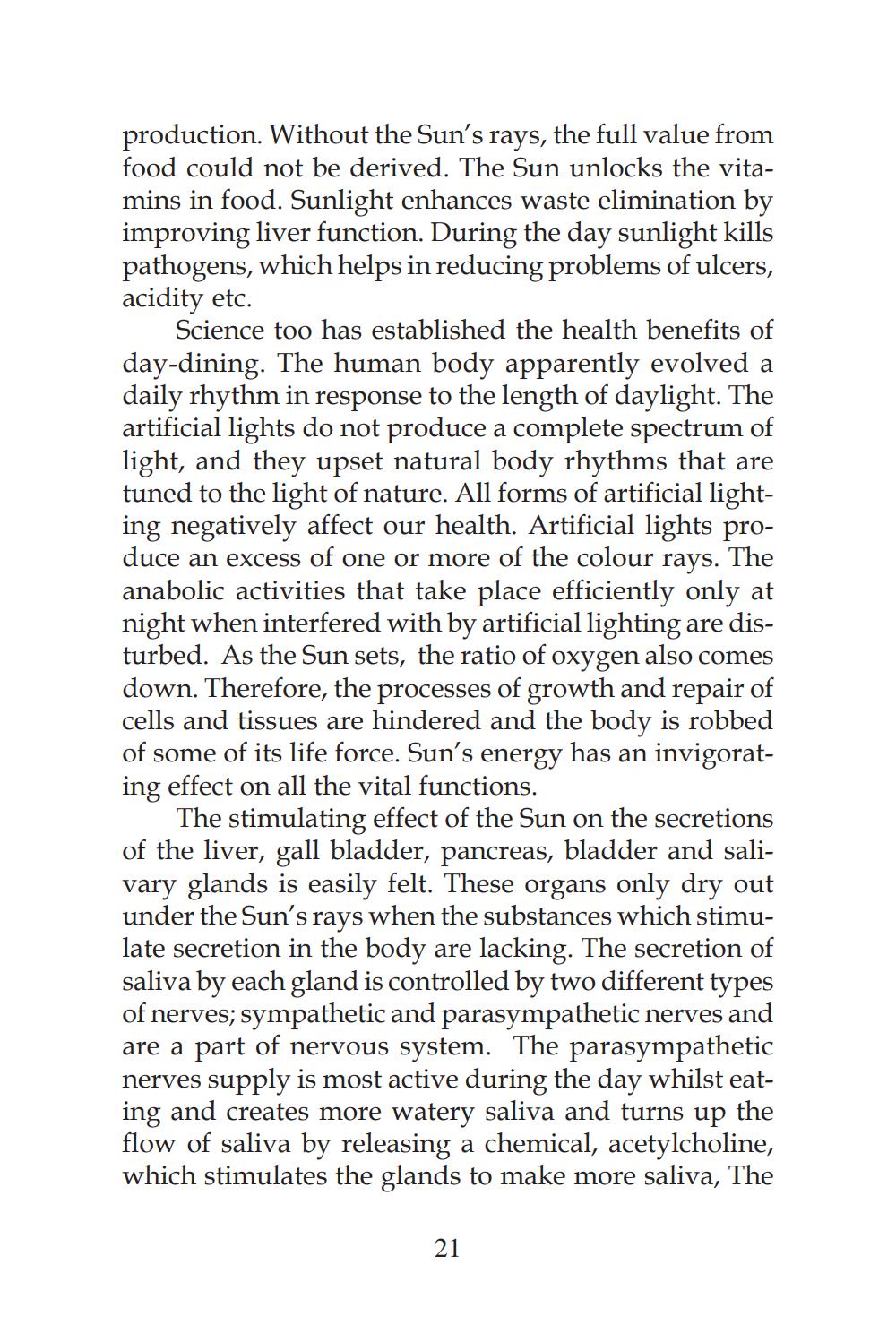________________
production. Without the Sun's rays, the full value from food could not be derived. The Sun unlocks the vitamins in food. Sunlight enhances waste elimination by improving liver function. During the day sunlight kills pathogens, which helps in reducing problems of ulcers, acidity etc.
Science too has established the health benefits of day-dining. The human body apparently evolved a daily rhythm in response to the length of daylight. The artificial lights do not produce a complete spectrum of light, and they upset natural body rhythms that are tuned to the light of nature. All forms of artificial lighting negatively affect our health. Artificial lights produce an excess of one or more of the colour rays. The anabolic activities that take place efficiently only at night when interfered with by artificial lighting are disturbed. As the Sun sets, the ratio of oxygen also comes down. Therefore, the processes of growth and repair of cells and tissues are hindered and the body is robbed of some of its life force. Sun's energy has an invigorating effect on all the vital functions.
The stimulating effect of the Sun on the secretions of the liver, gall bladder, pancreas, bladder and salivary glands is easily felt. These organs only dry out under the Sun's rays when the substances which stimulate secretion in the body are lacking. The secretion of saliva by each gland is controlled by two different types of nerves; sympathetic and parasympathetic nerves and are a part of nervous system. The parasympathetic nerves supply is most active during the day whilst eating and creates more watery saliva and turns up the flow of saliva by releasing a chemical, acetylcholine, which stimulates the glands to make more saliva, The
21




